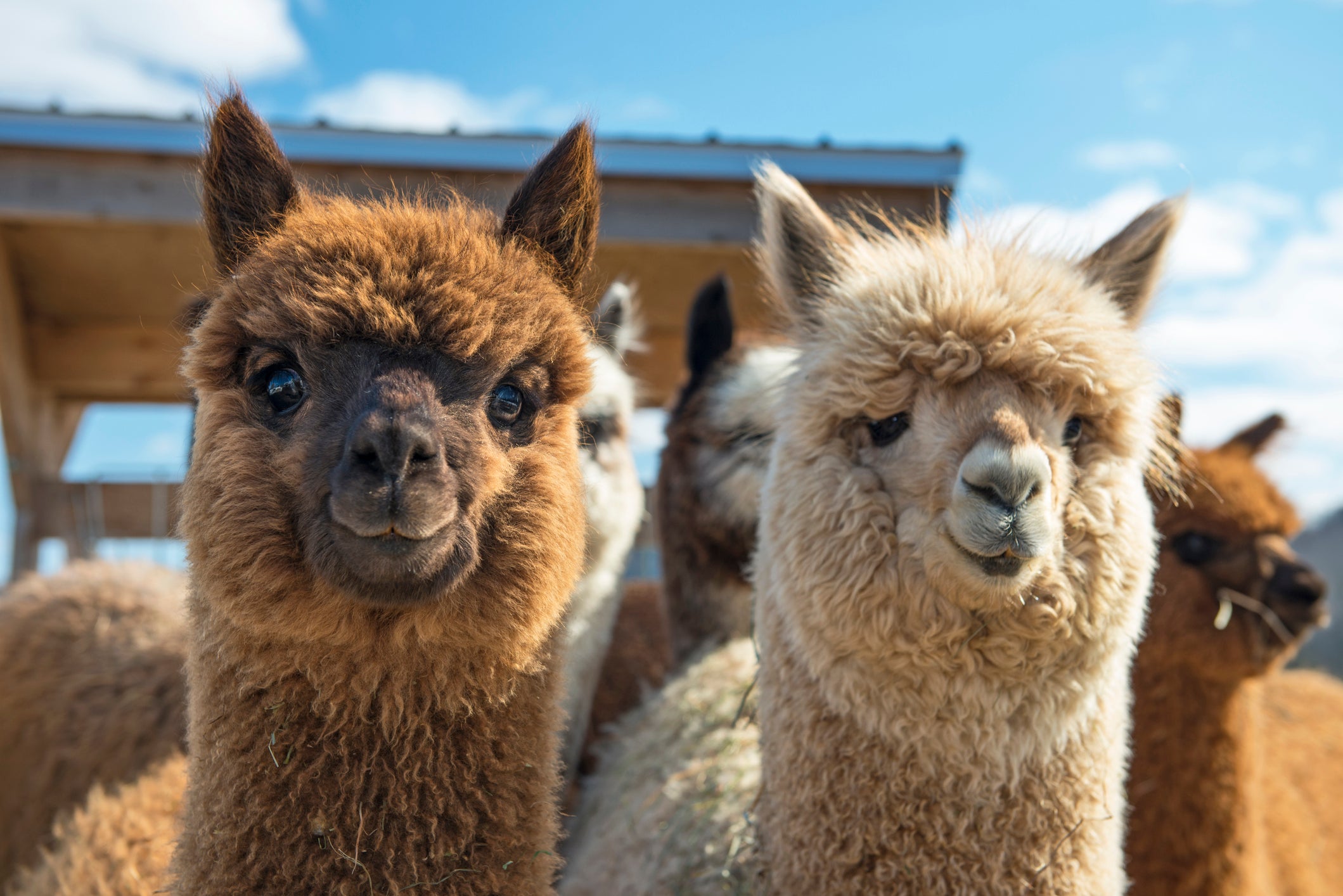Alpaca antibodies could prevent coronavirus infection in humans, study suggests
Could the woolly mammals help researchers find Covid treatment?

Particular antibodies found in camelids – the group of animals including camels, llamas and alpacas – could block the virus which causes Covid-19 from entering human cells, scientists have said.
The Swedish research team behind the new study believe this neutralising antibody, or “nanobody” has the potential to be developed as an antiviral treatment and used to fight the pandemic, which has killed over 800,000 people around the world.
The search for effective nanobodies – which are fragments of antibodies that occur naturally in camelids and can be adapted for humans – began in February when a 12-year-old alpaca named Tyson was injected with the coronavirus’ spike protein by scientists at the Karolinska Institute in Stockholm.
After 60 days, blood samples from the alpaca showed a strong immune response against the spike protein.
In June the team reported they had isolated the nanobodies from Tyson’s blood that bind to the same part of the virus as human antibodies, and could block the infection.
The research team has now completed the study and reported the findings which they hope will lead to pre-clinical animal studies, before eventually being used in the fight against the coronavirus.
“We hope our findings can contribute to the amelioration of the Covid-19 pandemic by encouraging further examination of this nanobody as a therapeutic candidate against this viral infection,” said Gerald McInerney, corresponding author and associate professor of virology at the Department of Microbiology, Tumour and Cell Biology at Karolinska Institutet.
The team said nanobodies offer several advantages over conventional antibodies as candidates for specific therapies. They span less than one-tenth the size of conventional antibodies and are typically easier to produce cost-effectively at scale.
“Critically, they can be adapted for humans with current protocols and have a proven record of inhibiting viral respiratory infections,” the researchers said.

First author of the study, Leo Hanke, said: “Using cryo-electron microscopy, we were able to see how the nanobody binds to the viral spike at an epitope which overlaps with the cellular receptor ACE2-binding site, providing a structural understanding for the potent neutralisation activity.”
His colleague Ben Murrell, assistant professor in the Department of Microbiology, Tumour and Cell Biology and co-senior author of the study, said: “Our results show that [the nanobody] Ty1 can bind potently to the SARS-CoV-2 (the official name of the virus which causes Covid-19) spike protein and neutralise the virus, with no detectable off-target activity.
“We are now embarking on preclinical animal studies to investigate the neutralising activity and therapeutic potential of Ty1 in vivo (in animals).”
The Swedish team are not the only researchers examining the potential of nanobodies from alpacas.
Researchers at the University of Kentucky College of Medicine are also studying nanobodies produced by three alpacas, named Big Boy, Blue Eyes and Emperor.
The research is published in the journal Nature Communications.
Join our commenting forum
Join thought-provoking conversations, follow other Independent readers and see their replies
Comments
Bookmark popover
Removed from bookmarks